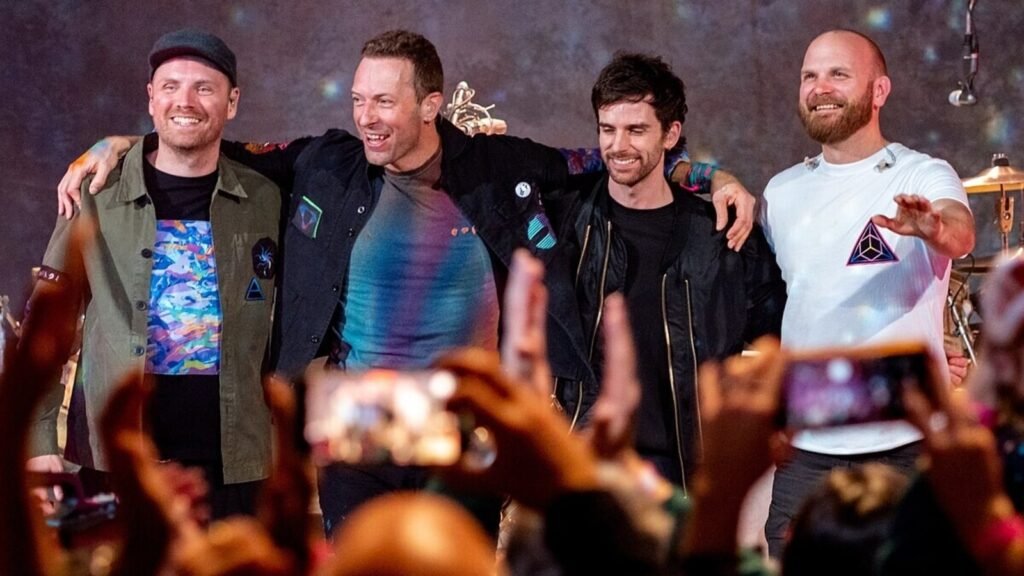It’s a rare and thrilling moment when your favourite band or artist announces tour dates for your city, especially on a weekend when you’re free. But alongside the excitement comes a darker reality: the rise of concert ticket scammers. These shadowy figures, lurking behind untraceable phones in nondescript backrooms, are always ready to exploit eager fans. The entire Coldplay fiasco is just one example of how dangerous these re-sellers can be. Recently, reports emerged of an 18-year-old from Chunabhatti, Maharashtra who fell victim to one such scam while trying to buy tickets for a Coldplay concert, costing him around ₹2.2 lakh.
According to a report, the teenager found what appeared to be a legitimate contact while searching for tickets online. After paying ₹7,000 via UPI for his own ticket, he shared the number with friends, who collectively spent ₹2.17 lakh on 24 tickets. The fraudsters sent a fake email confirmation from ‘confirmation@book-my-show.co’ and they would have been successful had a relative not noticed inconsistencies in the email address; this prompted the teenager to realise he’d been scammed and file a police report. While this incident may seem shocking, black market activity around popular concerts is nothing new.
Singapore faces the brunt
This February in Singapore, 583 individuals were deceived by e-commerce concert ticket scams, resulting in losses of at least $223,000, according to an announcement from the Singapore Police Force (SPF). Scammers used their Singpass credentials to open new bank accounts and mobile phone lines, then created fake listings for concert tickets. The targeted events included performances by Taylor Swift, Coldplay, pop duo Yoasobi, singer Joker Xue as well as South Korean boy band, Enhypen. Some scammers even provided fraudulent screenshots or videos of tickets, promising to transfer them to victims’ accounts after payment was completed.
Taylor fans had to Shake Off the scams
In April 2024, Lloyds Bank released a report based on its own customer group to find a surge in fraud cases concerning concert tickets for Taylor Swift’s widely popular Eras Tour. After tickets went on sale in July, 90% of the victims accessed unofficial groups with tens of thousands of members looking to buy and sell tickets for Swift’s famous concerts. Later, more than 600 customers came forward to report being scammed. The average amount lost by moist victims was around £332, while in some cases it was more than £1,000. The same bank then looked at a bigger set of data surrounding general concert scams, finding that these ticket scams increased by 158% in 2024 — targeted artists included Coldplay, Harry Styles, Beyonce, Lewis Capaldi and Calvin Harris.
It happened in Hong Kong, too!
Similarly, in July of this year, numerous South Korean pop idol groups and local artists were set to perform in Hong Kong. During this time authorities reported that over HK$420,000 was lost due to 57 concert ticket fraud cases. Many victims in Hong Kong fell for these scams after engaging in misleading posts across various social media platforms like Carousell, Instagram and Facebook.
AR Rahman’s disaster of a concert
Although we’ve come to expect the presence of scammers, a significant shift occurred when the organisers themselves began exploiting loyal fans. A case of this was reported in September 2023 when fans of A.R. Rahman were unable to enjoy his much-awaited Marakkuma Nenjam concert due to the excess sale of fake tickets. Held at Adityaram Palace grounds on the East Coast Road (ECR) near Chennai, many fans with valid tickets had to return home disappointed — due to the unexpectedly huge crowd at the venue following the over-sale of tickets.
While investigating how such a large number of people turned up at the venue, the police filed a case against the ACTC Events director Hemanth Kumar. Tambaram Police Commissioner A. Amalraj said, “Our inquiry revealed that the organisers oversold the tickets. Moreover, many had fake tickets on their hands -which may be one of the reasons for overcrowding. The organisers violated the conditions imposed in the licence granted to them for the conduct of the event.” Taking a page outside the Fyre Festival’s book the organisers had initially told the police that around 20,000 people would gather at the venue but they had sold tickets above 40,000 — many fans came with fake tickets to the venue, sold to them by the organisers themselves.
Now there are a series of ways to make sure you don’t fall face-first into a scam. The main asks you to only buy from trusted sellers, and take extra precautions when buying from third-party sellers. More vaguely, experts advise you to avoid deals that look too good to be true; if the prices are really low or you’re getting a speciality discount in exchange for very little extra money, you should run the other way. Otherwise, you might as well find comfort in the heartbreaking threads on Reddit of fans losing large sums of money on tickets.

